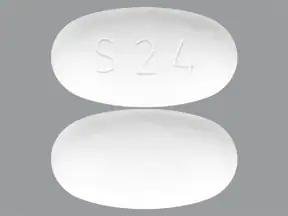Magnesium sulfate/potassium chloride/sodium sulfate and Alcohol/Food Interactions
There is 1 alcohol/food/lifestyle interaction with magnesium sulfate / potassium chloride / sodium sulfate.
Sodium Sulfate Food
Moderate Food Interaction
Consumer information for this interaction is not currently available.
ADJUST DOSING INTERVAL: Bowel cleansing products can increase the gastrointestinal transit rate. Oral medications administered within one hour of the start of administration of the bowel cleansing solution may be flushed from the gastrointestinal tract and not properly absorbed.
MANAGEMENT: Patients should be advised that absorption of oral medications may be impaired during bowel cleansing treatment. Oral medications (e.g., anticonvulsants, oral contraceptives, antidiabetic agents, antibiotics) should not be administered during and within one hour of starting bowel cleansing treatment whenever possible. However, if concomitant use cannot be avoided, monitoring for reduced therapeutic effects may be advisable.
Switch to professional interaction data
Magnesium sulfate/potassium chloride/sodium sulfate drug interactions
There are 543 drug interactions with magnesium sulfate / potassium chloride / sodium sulfate.
Magnesium sulfate/potassium chloride/sodium sulfate disease interactions
There are 14 disease interactions with magnesium sulfate / potassium chloride / sodium sulfate which include:
- depression
- inflammatory bowel disease
- intestinal obstruction disorders
- cardiac disease
- renal dysfunction
- myasthenia gravis
- dehydration/diarrhea
- dehydration
- familial periodic paralysis
- hyperkalemia
- renal dysfunction
- GI irritation
- arrhythmias
- acidosis
More about magnesium sulfate / potassium chloride / sodium sulfate
- magnesium sulfate/potassium chloride/sodium sulfate consumer information
- Check interactions
- Compare alternatives
- Reviews (129)
- Side effects
- Drug class: laxatives
- En español
Related treatment guides
Drug Interaction Classification
| Highly clinically significant. Avoid combinations; the risk of the interaction outweighs the benefit. | |
| Moderately clinically significant. Usually avoid combinations; use it only under special circumstances. | |
| Minimally clinically significant. Minimize risk; assess risk and consider an alternative drug, take steps to circumvent the interaction risk and/or institute a monitoring plan. | |
| No interaction information available. |
Further information
Always consult your healthcare provider to ensure the information displayed on this page applies to your personal circumstances.


